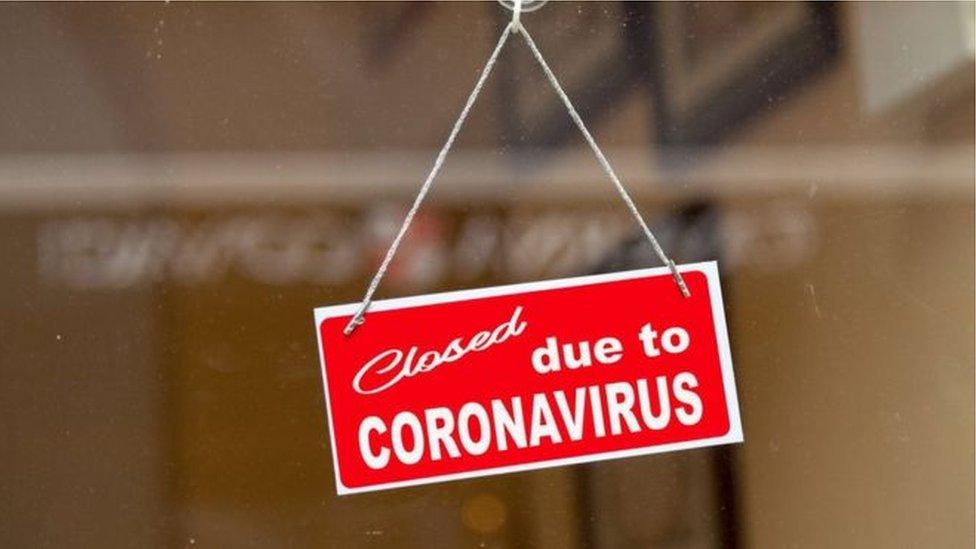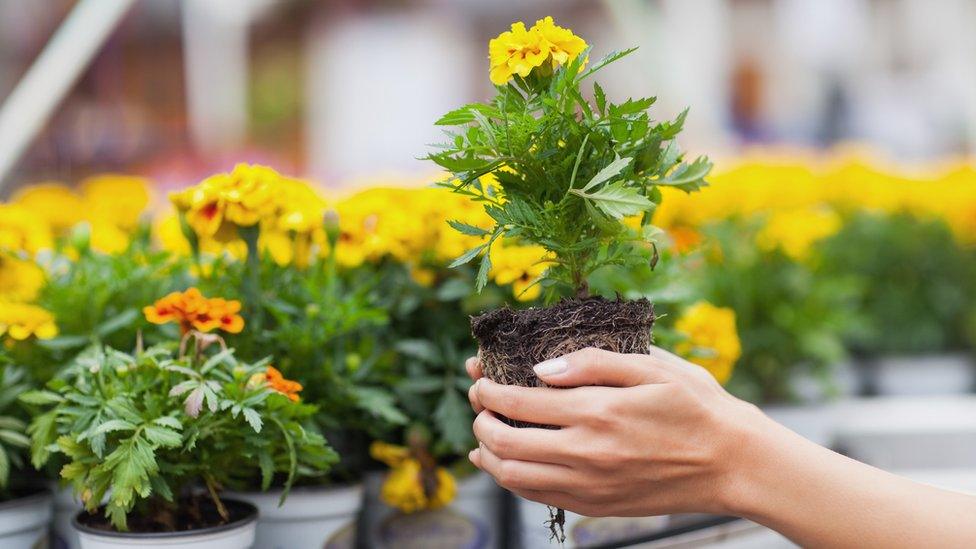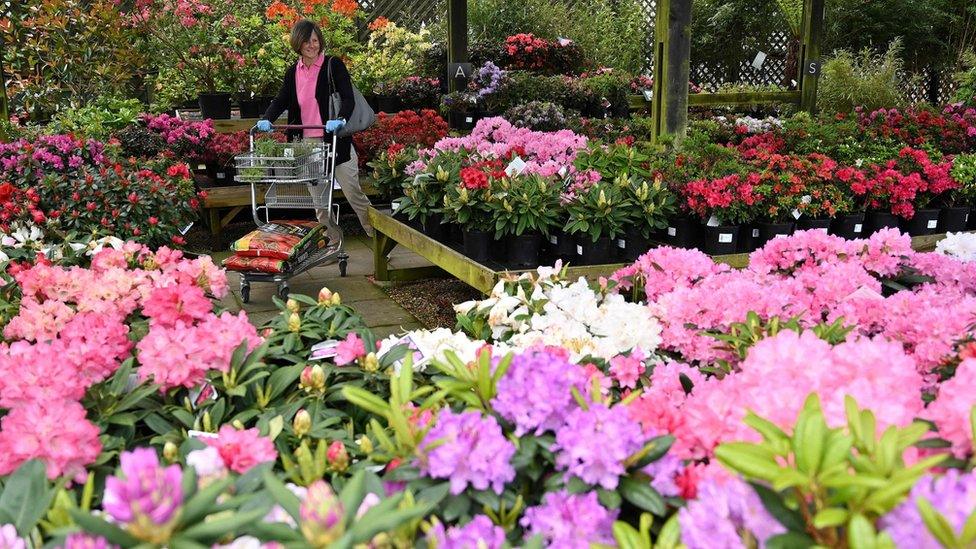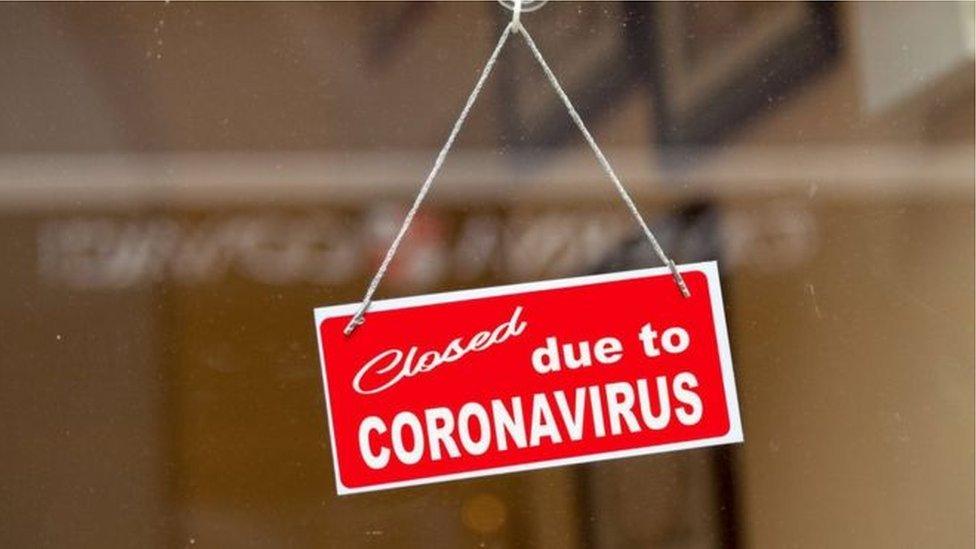Coronavirus: NI being eased 'back to normality step by step'
- Published

The executive is working to ease Northern Ireland "back to normality step by step", Diane Dodds has said.
From Monday, garden centres and recycling centres can reopen as part of NI's recovery plan from lockdown.
Mrs Dodds, the Economy Minister, said the first and deputy first ministers will make more announcements about lifting other measures on Monday.
"We're in a good place, we're reacting to the science," she said.
Speaking at the executive's daily press conference on Friday, Mrs Dodds said people must still adhere to social distancing, and that her focus was now on trying to return the Northern Ireland economy to a strong position.
She has been working on an additional paper with additional proposals for businesses that will be brought to the executive next week.
Her statement came after the latest figures from the Northern Ireland Statistics and Research Agency (Nisra) revealed there had been 599 coronavirus-related deaths in the week up to 8 May - almost half of those were in care homes.

Garden centres will be some of the first businesses allowed to reopen next week as lockdown measures are slowly eased
Mrs Dodds also gave more details about a £40m scheme for small businesses that have not, so far, qualified for coronavirus grant support, first announced on 5 May.
It is being targeted at micro businesses, which are usually firms with fewer than 10 employees.
The minister said Invest NI would publish eligibility criteria on Friday night and the scheme will open to applications within the next seven days.
Many small businesses have qualified for £10,000 grants, while larger businesses in some sectors will get £25,000.
The £25,000 grant will be expanded to allow businesses that occupy rented properties to access support.
Mrs Dodds said 22,500 small businesses have accessed support through various schemes so far, totalling almost a quarter of a billion pounds.
'Non-negotiable'
On the issue of workplace safety during the pandemic, Mrs Dodds said employers had a "non-negotiable" duty to meet their responsibilities.
"They must provide a safe and proper environment for people to work in," she added.
Earlier this week, it emerged that the Health and Safety Executive has fielded complaints about approximately 480 firms during the Covid-19 lockdown.
The body, which was criticised for not inspecting sites in response to social-distancing concerns in the workplace, said such visits are now under way.
The figures are a measure of the challenge faced by employers and employees as society contemplates a widespread return to work.

Why does the R-rate matter for lifting lockdown?
The R-value - or reproduction number - is at the heart of the executive's decision to keep the lockdown in place, until at least the end of May, only lifting a small number of measures that bring the least risk.
R refers to the average number of people that someone with Covid-19 is expected to infect after contracting the virus.
The goal is to keep R under one.
Last week, Mrs Foster said the R-rate in NI was sitting at "below 0.7", falling from between 0.8 and 0.9 in the previous two weeks.
The Department of Health said the R-rate is calculated mostly on intensive care occupancy and hospital admissions, but that care home cases have essentially "no impact" on it.
The executive's Chief Scientific Adviser, Prof Ian Young, has said the R-number in care homes across Northern Ireland is "significantly above 1.0 at the moment".

EASY STEPS: How to keep safe
A SIMPLE GUIDE: What are the symptoms?
CONTAINMENT: What it means to self-isolate
HEALTH MYTHS: The fake advice you should ignore
MAPS AND CHARTS: Visual guide to the outbreak
VIDEO: The 20-second hand wash

- Published20 October 2020

- Published14 May 2020

- Published5 May 2020
